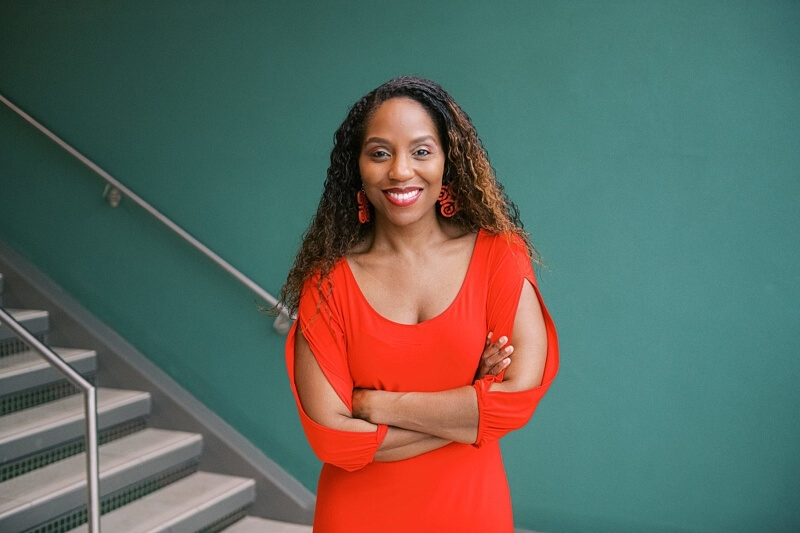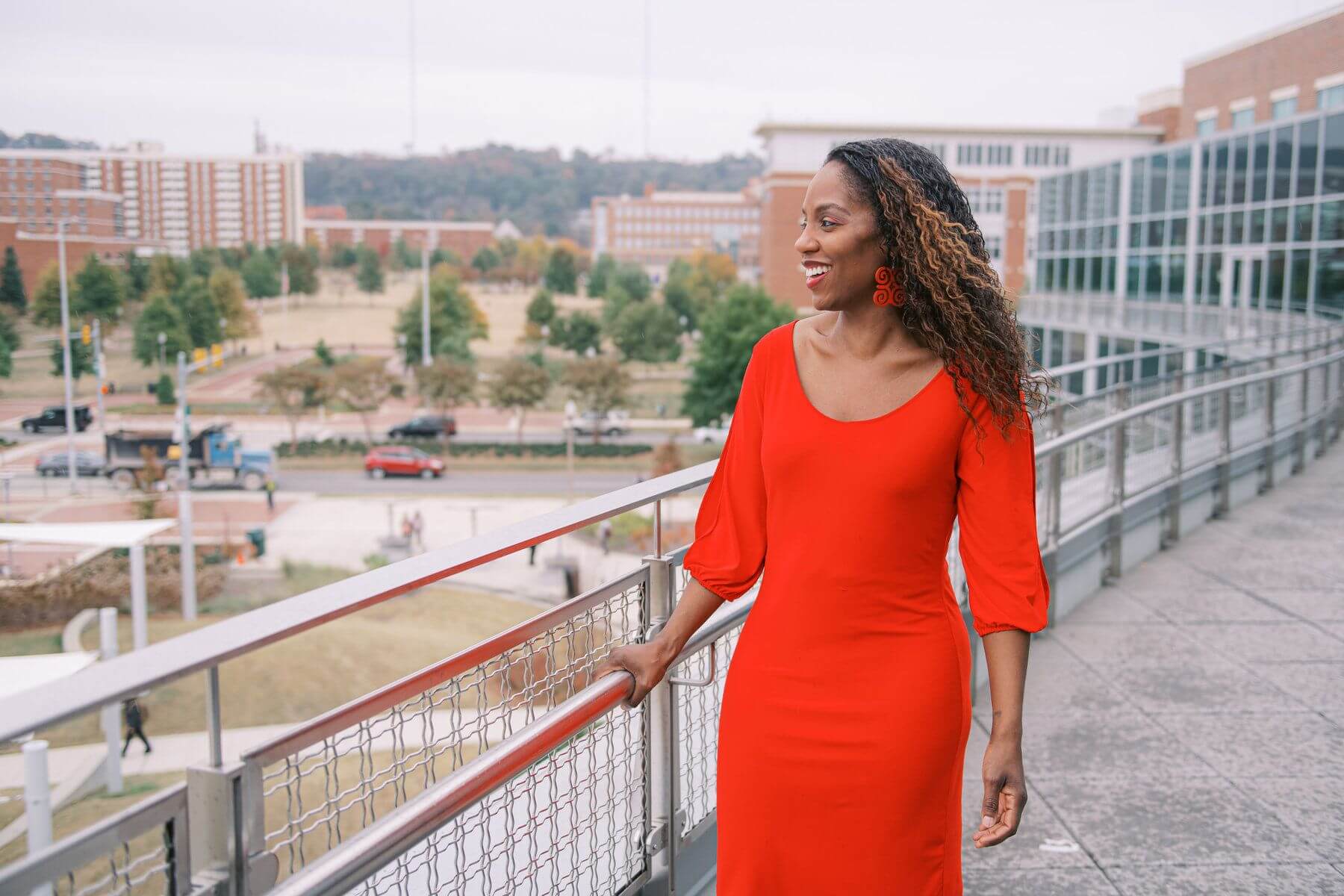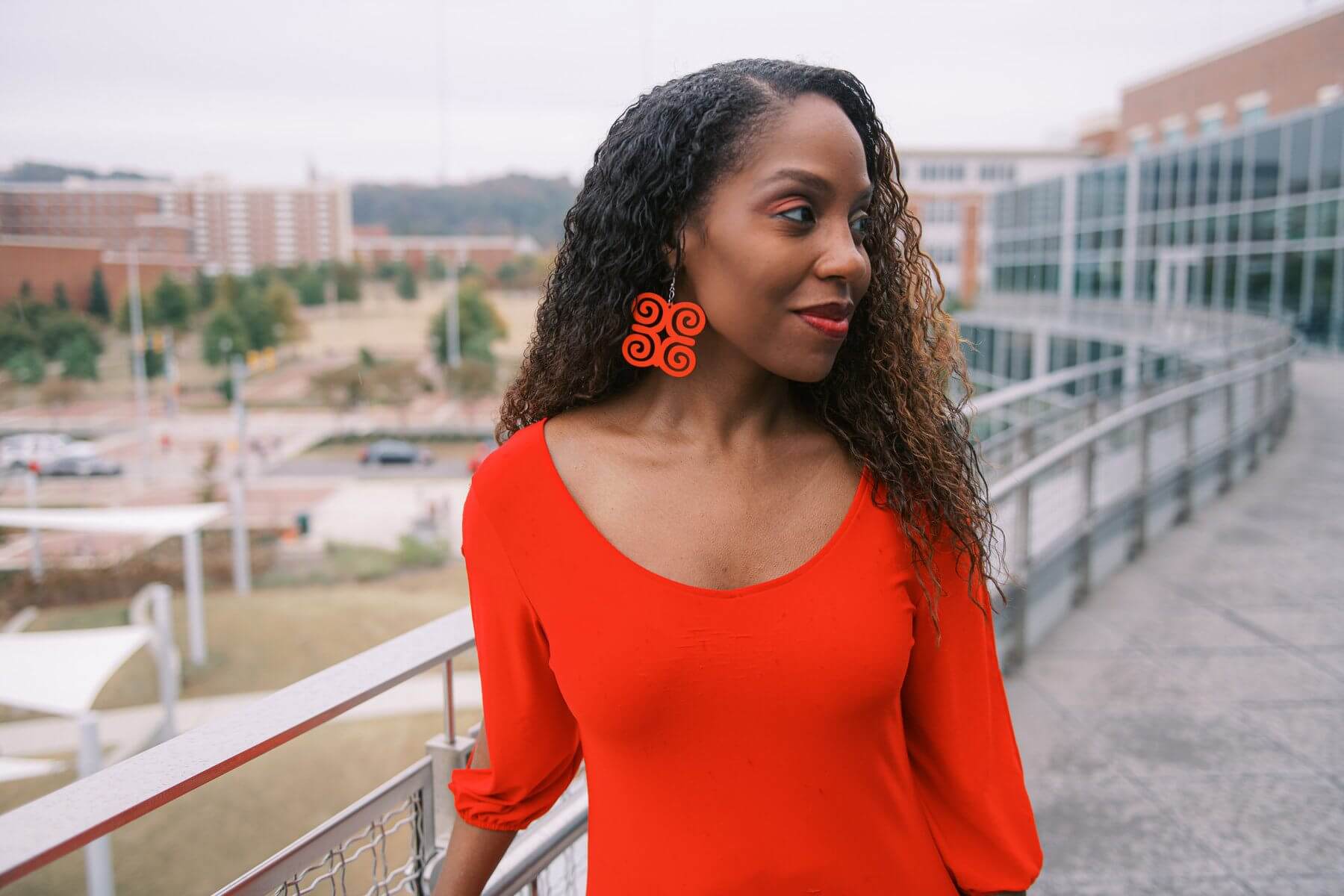In 2014, Nadia Richardson started a Facebook page she called No More Martyrs to address the mental health concerns of African American women. That Facebook page, which currently boasts more than 18,000 followers, is now a nationwide campaign that hosts conferences, workshops, meetups and more. Through No More Martyrs, Nadia has been able to work with licensed counselors, City of Birmingham officials, and even the Congressional Caucus on Black Women and Girls in Washington, D.C., to give more black women with mental health concerns the care and support they need. Nadia, a professor in the School of Health Professions at the University of Alabama at Birmingham (UAB), was also awarded a Top 40 Under 40 recognition from the National Minority Quality Forum for the work she does through No More Martyrs. We are honored to introduce this week’s FACE of Birmingham, Nadia Richardson.

What inspired you to start No More Martyrs?
In 2014, three notable black women were lost to suicide: Titi Branch, the co-founder of Miss Jessie’s hair products; Simone Battle, who was a contestant on “The X Factor”; and Karyn Washington, who was the blogger behind For Brown Girls. I was following the stories. In the comments, people were asking, “What did they have to be sad about?” This showed such a misunderstanding of what mental health looks like. Someone wrote an article about Karyn Washington, and at the end of the article said, “Karyn will always be remembered as a martyr, but the problem is we don’t need any.”
So, I started a Facebook page. I called it No More Martyrs, and I said this is a safe space where we’re going to talk about black women and mental health. I started posting articles and resources and questions and encouraged people to follow.
RELATED: Meet the Woman Who’ll Help You Get a Raise

How did No More Martyrs grow from a Facebook page to what it is today?
It was never really supposed to be an organization or a nonprofit. We started to get this steady following. People asked for webinars and online chats. Then we started getting a following of licensed counselors who wanted to support. I asked — since I’m not a licensed professional — if they could answer some of the questions people were posing. So, it turned into an advisory committee of counselors who could now respond to people. When people started reaching out with things like suicidal ideation, we were able to connect them with counselors.
The next request was for in-person meetings. So, we started a nonprofit, and with our first grant, we were able to launch sister support meetups in Birmingham. We have dinner, and there’s a licensed professional there, and we have conversations.
Our online following started asking us to host meetups in different cities. Once we were a nonprofit, we started doing more programming, more conference presentations, workshops, mental health first-aid trainings, advocacy and connecting people to services.
How did you become interested in minority mental health?
I was diagnosed with depression when I was in graduate school at the University of Alabama. My master’s and doctorate are in higher education administration. I had a lot of questions around how institutions can support the development of students. How are institutions creating environments where all student development can be fostered holistically when students are so different?
When I was working on my dissertation, I chose to study the experience of black female college students at predominantly white institutions who were managing a mental health concern. It turned into something bigger than I thought. When I finished the program, and I finished my research, I ended up getting invitations from universities to present my research.

Based on your research, what are some unique obstacles black women face when it comes to mental health?
The findings did unearth the “strong black woman” idea, but it really talked more about racism, sexism and classism. The “strong black woman” idea persists because of those things. Those messages were instilled in us as a defense mechanism against the systems of inequality that we have no choice but to push back against. It’s not enough to say, “Oh, you can’t be strong all the time.” Fix the systems so that they don’t require me to be strong all the time, and then I won’t feel like I have to, and I can prioritize my wellness in the ways other people can.
Self-care has been a hot topic lately. What does self-care mean to you?
Self-care is very individual. If it’s a massage or manicure every once in a while, great, but if we’re not moving past self-care that can be bought, we’re not really doing the work of self-care. What does it look like for you to get rest? Sometimes self-care looks like really evaluating what is causing you high levels of fatigue. Is it work/life balance? Are there traumatic things that you have not yet healed from?
Self-care is not always sitting in a bathtub of rose petals. I like my self-care to look like that sometimes, but self-care is also going to my counselor when I don’t want to. Sometimes self-care is having difficult family conversations. Self-care might be letting go of a difficult romantic relationship or a toxic friendship. Self-care is work; it’s not always pretty. It could be very painful even. But on the other side of it, there’s peace.

What do you like to do when you’re not working?
I love to travel. I love the beach. I love getting a passport stamp if I can. I like going to cities, and I like getting lost. What I mean by that is I don’t have to go with an itinerary. I love nature. I like swimming. I like hiking. I like fishing and canoeing. I like bike riding. I do those things mostly when I travel, but I do like Ruffner Mountain, Oak Mountain Park, Tannehill Park, and Railroad Park.
What are some of your other favorite places in Birmingham?
I love music, so I love catching a show or a concert at Iron City, Saturn, WorkPlay, or the Alys Stephens Center.
Do you have any favorite restaurants?
I can’t think of anything I’ve had at Surin West that I didn’t like. At the Habanero’s in Bessemer, I love the shrimp nachos. And at EastWest, I always get the duck nachos. It’s a thing.
RELATED: Iconic Birmingham Dishes Everyone Should Experience

What’s your best piece of advice?
My career unfolded when I allowed myself to indulge in who I really am. I feel like sometimes the world can take reality and beat someone’s purpose out of them, so my advice would be to do what makes your heart happy. If it’s art, do it. You might not be Beyoncé, but you might teach Beyoncé, or you might write a song that Beyoncé sings. Do what you love. Plan for the future, but don’t let the future plan you.
Aside from faith, family and friends, what are three things you can’t live without?
Pandora — I have a station for every mood. Warm beverages like coffee, tea and hot chocolate. And I love spicy ethnic food like Indian, Caribbean and Ethiopian.
Thank you, Nadia, for the work your do on behalf of women. And thank you to Eric & Jamie Photography for the beautiful photos.
**********
Want profiles of more amazing Birmingham women in your inbox every week? Subscribe to StyleBlueprint. Click HERE!


















